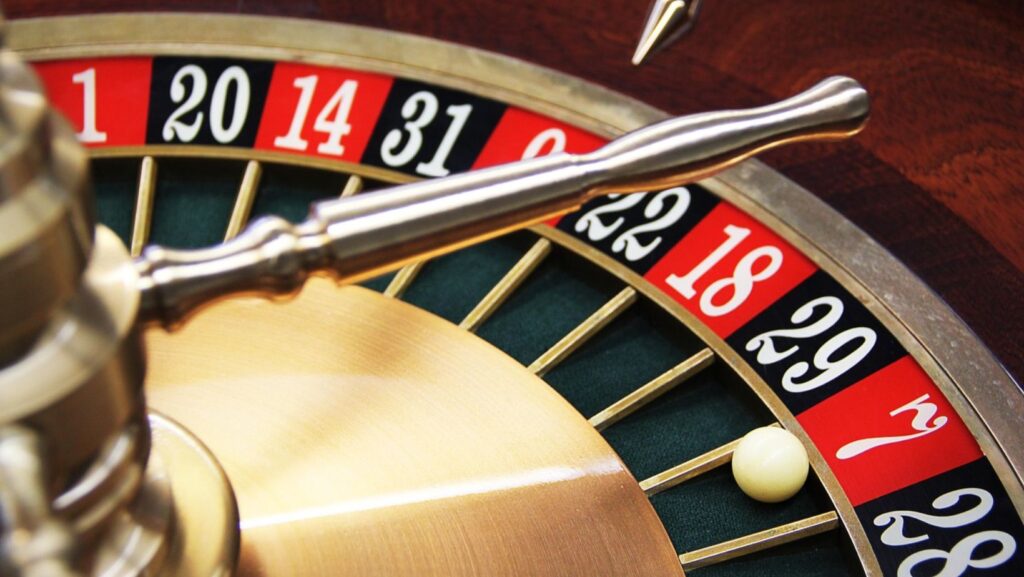Roulette is one of the most iconic classics that people tend to gravitate to when they first walk into a land-based venue, and it’s also one of the first entertainment activities players will choose when they play at a legally permitted real money gambling site for the first time.
It remains one of my favorites, and although I had no idea how to play when I placed my first wager, it didn’t take me long to pick up the basics. I started out with European Roulette and then realized there are three main variants – European, French, and American Roulette.
Today, I’ve found there are hundreds of computer-generated and live dealer roulettes to choose from, but they are all based on one of these three variants. Today’s whopping choice means that choosing the right one to play can often prove challenging, especially for newcomers who haven’t ever played before.
If you’re a beginner looking to play roulette for the first time, you’ve come to the right place. Here, I will go through the basics and reveal the names of certain hit titles that are easier for beginners to grasp.
However, the important thing to remember is that once you have learned one type of roulette, all others you decide to play will be just as easy. To play any of the games I’m about to mention from your preferred desktop computer or mobile device, you must be at least 18.
What are the main differences between American, European, and French Roulette?
There are only a few subtle differences between all three versions. American and European Roulette, for example, look pretty much the same to the untrained eye. To a certain extent, that’s true.
Also, French roulette might seem completely alien and intimidating because the entire layout of the roulette table in this format appears in the French language. However, European and French Roulette are the same, apart from the language displayed and the appearance of the betting strategies.
The roulette wheel in these two versions both have individual numbers (aka pockets) to bet on, starting from 1 to 36 with just one green zero. This means there are 36 different pockets. American roulette is the same, except it has two green zeros (a single and double zero pocket).
In other words, when comparing European vs American roulette (and French roulette), the only real difference is the extra ‘00’ pocket on the wheel in American roulette. Everything else is the same.

I prefer European and French Roulette because one fewer pocket on the wheel means my odds of winning are slightly greater.
Which roulette types are ideal for beginners?
When I was learning roulette as a beginner, I found a version at some of my favorite licensed and regulated sites called ‘Mini Roulette.’ It was available in the free-play mode and quickly brought me up to scratch with the basics.
After taking a few spins in this version, I quickly felt confident enough to try American and European Roulette, and I think most newcomers to roulette will be the same.
However, Mini Roulette is much harder to find these days, so you may want to start by playing any standard European Roulette game you find. The rules, odds, and payouts in all three roulette varieties are basically the same, so it really doesn’t matter which version you try first.
All you have to do is understand the odds and implied probability rate of certain outcomes occurring. I found it only takes a few rounds to get used to, but it does help to understand what the odds are trying to tell you to become a good roulette player.
What are the odds of winning in roulette?
Let’s take a quick look at some of the different roulette bet types and the odds/implied probability rates:
● Bet type: Straight Up. Odds: 35:1, which is the same as saying +3,500 in the American/moneyline odds format, 35/1 in fractional odds, 36.00 in decimal odds, and just a 2.80% IPR (implied probability rate) of actually occurring.
Therefore, if you place a $/€/£1.00 Straight Up bet on the number 23, for example, my lucky number, and win, your total returns would be $/€/£$/€/£36.00 (which includes your initial $/€/£1.00 stake returned, plus a $/€/£35.00 winnings).
In comparison, the bet type with the lowest odds/highest implied probability rate is to bet on Red/Black, Odd/Even, any numbers from 1-18, or 19-36. To bet on any of these, you’re looking at odds of 1:1 (+100, 1/1 or 2.00) with a 50.00% IPR.
Therefore, if you place a $/€/£1.00 bet on one of these outcomes and win, your total returns would be $/€/£2.00 (including your $/€/£1.00 stake returned and a $/€/£1.00 profit). The other standard roulette bet types are as follows:
● Bet type: Column/Dozen. Odds: 2:1 (+200, 2/1, or 3.00) with a 33.33% IPR (implied probability rate)
● Bet type: Line bet. Odds: 5:1 (+500, 5/1, or 6.00) with a 16.70% IPR
● Bet type: Corner/Fourbet. Odds: 8:1 (+800, 8/1, or 9.00) with a 11.10% IPR
● Bet type: Street bet. Odds: 11:1 (+1,100, 11/1, or 12.00) with an 8.30% IPR
● Bet type: Split bet. Odds: 17:1 (+1,700, 17/1, or 18.00) with a 4.60% IPR
I found that after mastering these basic odds, I can play any roulette game with confidence. After learning them yourself, you may want to check out some of the more complex computer-generated and live dealer roulette varieties.
Examples from various market-leading software providers worth checking out include Spread Bet Roulette, Diamond Bet Roulette, 100/1 roulette, Monopoly Roulette Tycoon, and Big 500X Roulette.

Others I enjoy playing that you may also want to check out include the following: Immortal Romance Roulette, Rainbow Riches Live Roulette, Hockey Fever Roulette, Live Nexus Roulette, Live XXXtreme Lightning Roulette, Live Power Up Roulette, Live Spin & Win Roulette, Live Mega Fire Blaze Roulette, and Live Gold Vault Roulette, to name a few.
When playing online roulette in real money mode, gamble responsibly and start by placing small bets. Try not to place too many outsider bets with long odds. Also, before depositing, start by setting a reasonable budget.
I’ve found the best way to ensure I don’t spend more than I originally budgeted is to set deposit limits or spending caps when I log into my favorite roulette site.
I’ve also found that setting win/loss limits and session time reminders helps, so you may want to set them manually. It keeps things safe and fun and means you won’t spend more than you initially budgeted for.


